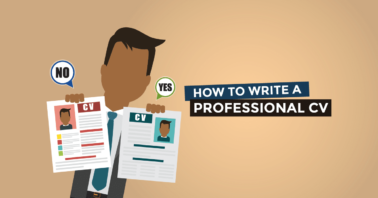
We all like to prove our expertise at work, and depending on the kind of job responsibilities you have, your tasks may look overwhelming sometimes. You’ve suddenly realised the need to put every second of your day at work to good use as you try to find work-life balance.
Ironically, you discover you only waste time at work perhaps trying to complete a task or juggling a few at once.
Companies and organisations have overtime made efforts to help their employees work better; and smarter and while some succeed, many others still end up working these employees round the clock.
But there are just a few rules around working effectively and boosting your productivity both at work and everywhere else.
Know your body clock.
In other words, figure out the time of the day you are most excited about work. Your brain energy level varies in every 24-hour cycle and when you know the time of the day your body, brain and mind focuses more on work, you’ll efficiently carry out tasks and save yourself the risk of making mistakes. Find out whether you are a night owl, a morning person, or something in between.
Work in chunks and concentrate.
If you have a big report due for submission soon, divide it and concentrate on it bit by bit. Allot considerable amount of time for each task and take time apart for breaks too. This will help you focus on a particular task and avoid distractions like looking at your email or checking that website your colleague told you about. The Pomodoro technique, a time management method (planning, tracking, recording, processing, visualizing) formulated by Franceso Cirillo in the late 80s; recommends 25 minutes of concentrated, uninterrupted work. Pouring your energy on one important task and not spreading it to several tasks ensures good quality of your work. Spreading your attention to many can lead to poor outputs.
Take a five-minute break in between related tasks, but refrain from taking a long one, as this can disrupt your momentum.
You may also opt for a 15-minute break between unrelated tasks. You can walk briskly to a nearby convenience store to give yourself time to gather your thoughts. Unexpectedly, most “aha” moments happen during such periods.
Know which tasks you should prioritise.
Think of the most urgent and important task delegated to you and then focus on delivering that one first. Write down all the tasks from top priority to the least important. When scanning through your email, read the ones that need urgent responses first like mails from your boss or clients; leave the rest till your free time. Resist the urge to do the easiest task first; stick with your priority list, so that your work becomes less demanding as the day progresses.
Handle distractions efficiently.
Usually, it’s difficult to concentrate on a task at hand with streams of distractions – from your nosy colleague to phone calls, emails, or meetings. Even the thought of a personal task can be a distraction, like preparing for a party after work or looking forward to seeing a movie at the end of the day. If the distraction is something you can minimize then do so, prepare a schedule for the birthday, the email to your friend, phone call to your spouse etc. then go back to the task at hand. For unsolicited calls, politely ask to return the call at a later time and get back to work.
Pay attention to your body’s signals.
Experts recommend working at an interval of 90 minutes without interruptions to maximize productivity. This is because the body goes into physiological fatigue with a continued alertness in a period of 90 minutes, it is actually the body’s way of telling you to take a break. A Florida State University study shows that the best élite performers usually take breaks in between 90-minute sessions and normally do not practice longer than four or five hours.
Additionally, experts recommend going to sleep and waking up at roughly the same time every day. This may sound trite, but you can’t neglect it. You need at least six hours of sleep every night to work at your best during the day. If you can, take a 15-minute nap to renew your energy. Like any machine, your body enters the shut-down mode when pushed to work without resting.
Learn how and where to get help.
Do not waste time badgering into everyone’s office every time you have a problem. It really does pay to do things right the first time. But if you are new to your job and just can’t help it, you are better off seeking the help of your colleagues and boss to get some advice from them on how to do things efficiently.
Think about your work habits and evaluate your productivity.
Plan your typical workday routine and stick to it.
Find out why you had to carry over work through the night instead of finishing it in the office; make a plan to avoid a recurrence.
Spend less time doing more; that’s how you can be a top performer and still find a work-life balance.
——————–
Author bio:
Felix Tarcomnicu is a regular contributor on ResumeOK.com. There he writes job tips and resume examples.




